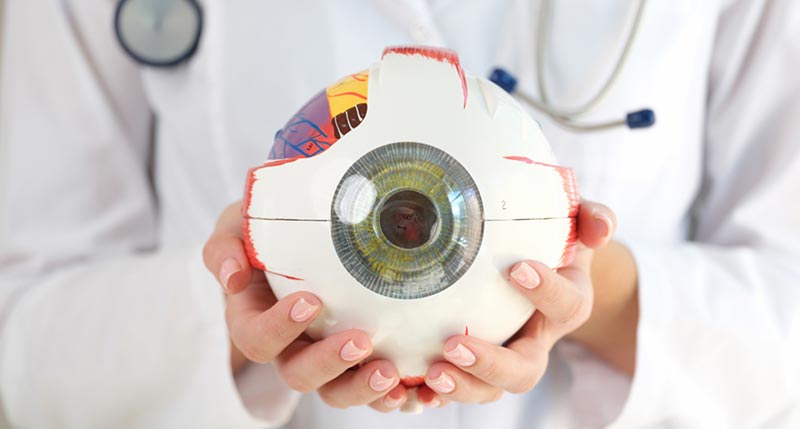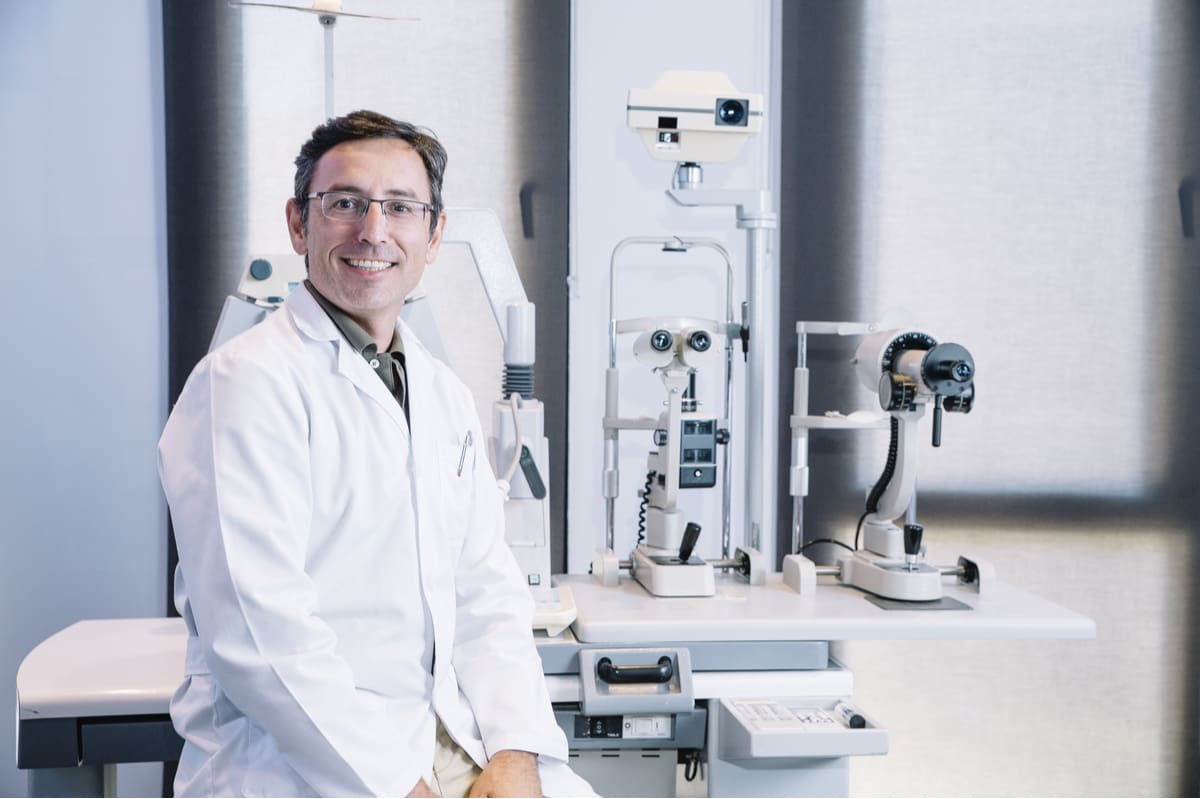The Significance of Routine Eye Exams: Insights From a Seasoned Optometrist
Regular eye tests offer as an important component of health care that prolongs beyond simple vision correction. A skilled eye physician can supply understandings into how these assessments not only identify common eye conditions but additionally disclose underlying wellness problems that may otherwise go undetected.
Advantages of Regular Eye Exams
Although numerous individuals may forget the importance of routine eye tests, these analyses play a critical role in maintaining total health and wellness and wellness. Routine eye exams offer not only to examine vision but likewise to detect very early indicators of systemic health concerns, consisting of diabetic issues and high blood pressure. By identifying these problems at their beginning, clients can obtain prompt interventions, significantly enhancing long-term results.
Furthermore, eye tests can help in checking existing health and wellness concerns, making sure that any type of changes in vision or eye health are without delay resolved (optometrist). The evaluations allow for personalized suggestions relating to eyewear, lifestyle changes, and protective steps against prospective eye stress or damage
Beyond physical wellness, the benefits of regular eye tests reach improving quality of life. Enhanced vision facilitates much better performance in daily activities, from checking out to driving, consequently adding to better self-reliance and safety and security. Inevitably, focusing on eye exams fosters an aggressive technique to health administration, empowering people to take cost of their health. Normal check-ups are a vital part of a comprehensive health care strategy, guaranteeing that both vision and total health and wellness are preserved throughout life.
Common Eye Issues Detected
Routine eye examinations are crucial in finding a range of usual eye conditions that can dramatically influence vision and overall wellness. Amongst one of the most widespread conditions determined throughout these exams are refractive errors, including nearsightedness (nearsightedness), hyperopia (farsightedness), and astigmatism. These conditions commonly materialize as obscured vision and can be quickly remedied with prescription glasses or contact lenses.
An additional common concern is glaucoma, a team of eye illness that harm the optic nerve, often linked to enhanced intraocular stress. Early detection is vital as it can protect against irreparable vision loss.
Age-related macular deterioration (AMD) is another considerable condition that affects main vision, particularly in individuals over 50. Ultimately, diabetic person retinopathy, an issue of diabetes mellitus, can lead to severe vision impairment if not kept track of frequently. Via detailed eye tests, these conditions can be determined early, enabling timely management and therapy to protect vision and improve lifestyle.
Relevance of Very Early Discovery
Early detection of eye problems plays a crucial duty in protecting vision and preventing considerable health difficulties. Several eye illness, such as glaucoma, diabetic retinopathy, and age-related macular degeneration, can advance silently without recognizable signs in their early phases. By the time symptoms show up, irreparable damages may have occurred, resulting in irreversible vision loss.
Routine eye tests help with early medical diagnosis, permitting prompt treatment and treatment. As an example, treating elevated intraocular stress can prevent the onset of glaucoma, while handling blood sugar levels can significantly decrease the risk of diabetic person retinopathy. In addition, conditions like cataracts can be properly taken care of with medical intervention when determined early.

Just How Frequently Should You Visit?
Figuring out the regularity of eye examinations is crucial for keeping optimum eye health and wellness and vision. The basic recommendation for adults is to have a comprehensive eye test every one to two years, depending on individual danger elements and age. For people aged 18 to 60, an examination every click this site two years is generally enough if no vision problems exist. However, those over 60 ought to think about annual exams, as the danger of age-related conditions raises considerably.
People with certain threat elements, such as a family history of eye illness, diabetes mellitus, or existing vision issues, may need even more frequent evaluations. Kids must have their first eye exam at 6 months of age, followed by extra examinations at age three and prior to getting in college. Normal examinations during youth are crucial as vision can change quickly during developmental years.
Eventually, the frequency of check outs ought to be customized per person's conditions, including lifestyle, occupational threats, and any kind of pre-existing eye conditions. Consulting with an eye treatment expert can supply customized recommendations, making certain that your eye health is regularly kept track of and kept.
Tips for Your Eye Test
Preparing for your eye examination can boost the effectiveness of the go to and make sure a complete analysis of your eye health and wellness. To optimize your time with the eye medical professional, it is crucial to collect appropriate info prior to your consultation. Begin by assembling a checklist of any type of drugs you are currently taking, including over-the-counter medicines and supplements, as these can affect eye health.
Additionally, record any type of signs and symptoms you have experienced, such as blurred vision, discomfort, or frustrations. This information will certainly help your ophthalmologist in diagnosing possible concerns. If you put on glasses or get in touch with lenses, bring them along, also if you don't use them routinely. This will assist the medical professional assess any kind of modifications in your vision.
It is likewise advantageous to have a family members background of eye problems available, as genetic factors can add to your eye health and wellness. Ultimately, think about scheduling your exam for a time when you are less rushed, allowing you to ask concerns and review your issues completely. By preparing properly, you make sure that your eye examination is efficient and that your optometrist has all the essential information to offer the very best treatment possible.

Conclusion
Routine eye exams play a vital duty in preserving both vision and total health and wellness. They help with the early discovery of different eye problems and systemic concerns, enabling for prompt intervention. browse around this web-site The recommendations for regularity highlight the relevance of aggressive care. Executing basic primary ideas can enhance the evaluation experience. Eventually, prioritizing extensive eye analyses contributes considerably to the conservation of vision and the improvement of lifestyle, underlining the necessity of regular eye care in preventative health care techniques.
Normal investigate this site eye tests are important in finding a selection of common eye conditions that can significantly impact vision and total health.Figuring out the regularity of eye examinations is vital for keeping ideal eye health and vision.Preparing for your eye examination can enhance the performance of the visit and make certain a comprehensive evaluation of your eye health (optometrist). By preparing sufficiently, you ensure that your eye examination is efficient and that your eye physician has all the needed information to supply the best treatment possible
Ultimately, focusing on detailed eye assessments adds substantially to the conservation of vision and the renovation of top quality of life, highlighting the necessity of routine eye treatment in preventive medical care strategies.
 Michael Oliver Then & Now!
Michael Oliver Then & Now! Andrea Barber Then & Now!
Andrea Barber Then & Now! Jennifer Love Hewitt Then & Now!
Jennifer Love Hewitt Then & Now! Mackenzie Rosman Then & Now!
Mackenzie Rosman Then & Now! Nicki Minaj Then & Now!
Nicki Minaj Then & Now!